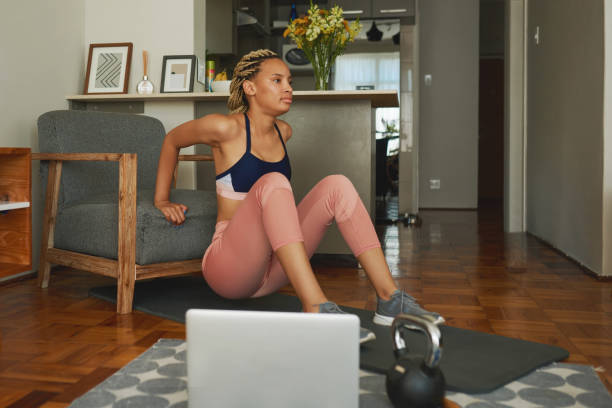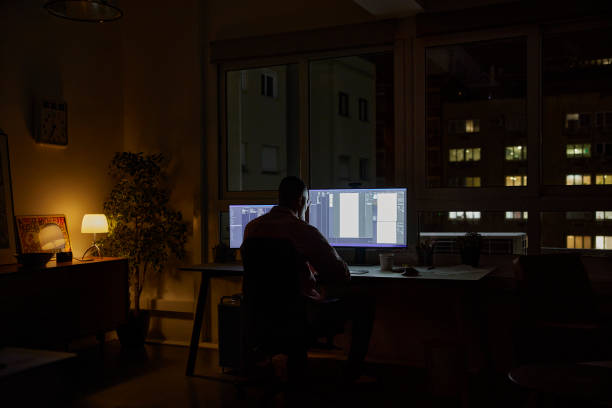Poor lighting can be described as insufficient or inadequate lighting that makes it difficult to see clearly.
It can also be said to be lighting that is too dim or weak to illuminate the an environment adequately.
There are so many negative health effects of poor lighting as it can significantly impact our health, both physically and mentally.
Many people have poor lighting for different reasons which may vary depending on individual circumstances and preferences.
Some have people use poor lighting because of energy costs, others just lack awareness, while some like the aesthetics.
Nonetheless, in this article, we’ll explore the health effects of poor lighting and what you can do to improve the lighting in your home or workplace.
Health Effects Of Poor Lighting
1. Eye Strain
One of the most obvious effects of poor lighting is eye strain.
When our eyes are exposed to inadequate or harsh lighting, they can become fatigued, resulting in headaches, blurred vision, and dry eyes.
This is particularly true for people who spend a lot of time working on computers or other electronic devices, as the blue light emitted by these screens can be particularly harsh on the eyes.
To combat eye strain, it’s important to make sure that the lighting in your work area is adequate and that you take regular breaks to rest your eyes.
2. Sleep Problems
Poor lighting can also affect our sleep patterns, contributing to insomnia and other sleep disorders.
This is because the body’s circadian rhythm, which controls our sleep-wake cycle, is sensitive to light.
When we’re exposed to bright light during the day, our bodies produce less melatonin, a hormone that helps us feel sleepy at night.
Conversely, when we’re exposed to dim light at night, our bodies produce more melatonin, making it easier to fall asleep.
To improve your sleep, it’s important to limit your exposure to bright screens and other sources of artificial light in the evening and to make sure that your bedroom is dark and quiet.
3. Mental Health Strain
In addition to physical effects, poor lighting can also have a negative impact on our mental health.
Studies have shown that exposure to natural light can improve mood, reduce stress, and boost cognitive function.
On the other hand, exposure to harsh or inadequate lighting can lead to feelings of anxiety, depression, and irritability.
To improve your mental well-being, it’s important to make sure that the lighting in your home or workplace is natural and calming and that you get plenty of sunlight during the day.
4. Reduced Visibility
Another negative health effect of poor lighting is that it can reduce visibility, making it difficult to see objects clearly.
This can lead to a variety of safety hazards, particularly in environments where movement is required.
For example, if you are walking down a dark hallway or staircase, you may be unable to see any obstacles in your path, increasing the risk of trips and falls.
In workplaces, inadequate lighting can make it difficult for workers to see the equipment they are working with, which can increase the risk of accidents and injuries.
5. Adversely Affects Productivity
Lastly, poor lighting can also significantly impact productivity by making it difficult for individuals to focus on their tasks.
Insufficient lighting can cause eye strain and fatigue, leading to decreased concentration and a reduced ability to complete tasks efficiently.
To add to that, poor lighting can negatively affect mood, causing individuals to feel tired, irritable, and less motivated.
How To Improve Your Lighting
So, what can you do to improve the lighting in your home or workplace? Here are a few tips:
- Make sure that the lighting in your work area is adequate and that you take regular breaks to rest your eyes.
- Limit your exposure to bright screens and other sources of artificial light in the evening, and make sure that your bedroom is dark and quiet.
- Make sure that the lighting in your home or workplace is natural and calming and that you get plenty of sunlight during the day.
- Use light-filtering shades or curtains to reduce glare and harsh light.
- Use task lightings, such as desk lamps or under-cabinet lights, to provide additional light where you need it.
Conclusion
Poor lighting can have a significant impact on our health, both physically and mentally. By ensuring that the lighting in your home or workplace is adequate and natural and by taking steps to reduce your exposure to harsh or artificial light, you can help protect your health and improve your overall well-being.
YOU SHOULD ALSO READ:
- 7 Worrying Health Effects of Late-night Sleeping
- 7 Bad Health Effects Of Junk Food On Students
- 5 Adverse Health Effects of Eating Too Much Meat
- 7 Negative Health Effects of Late Night Eating
- 5 Health Effects Of Eating Too Much Pepper
- 6 Sad Health Effects of Overworking
- 3 Health Effects Of Poor Sanitation
- 5 Damaging Health Effects Of Overthinking
- 10 Negative Health Effects Of Too Much Sugar
- 6 Negative Health Effects Of Bleaching Skin
- 7 Negative Health Effects Of Too Much Sleep
Collins Nwokolo is a human physiologist, writer and health enthusiast. He loves writing helpful articles on health and fitness, which he enjoys sharing with everyone.










